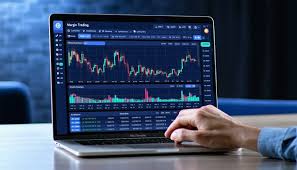
When you trade in the forex market, understanding how forex broker manage your trades can provide valuable insights into how this global network operates. Forex trading brokers play a crucial role as intermediaries between you, the trader, and the vast currency exchange market. With advanced technology and strategic operations, brokers ensure that trading happens quickly and efficiently while offering tools that enhance the trading experience.
Execution of Orders
One of the foremost responsibilities of forex brokers is executing your trade orders. After you place a trade on their platform, such as buying or selling currency pairs, the broker ensures that your request is processed in real-time. This is done by connecting with larger liquidity providers like banks or financial institutions, where trades are matched instantly to maintain market efficiency.
The underlying technology used for trade execution is intricate, but user-friendly platforms allow for seamless transactions. The speed of execution is a hallmark for reliable forex brokers, as even minor delays could affect outcomes in the high-volatility forex market.
Offering Flexible Leverage
Forex brokers also provide access to flexible leverage, allowing traders to increase the size of their positions relative to their initial investment. Leverage amplifies the ability to trade larger lots compared to what your deposited capital might allow. Brokers manage this function by extending funds to traders, giving them greater market exposure while maintaining built-in mechanisms like margin requirements to manage risk.
Traders should always consider potential risks when trading with leverage, as it can not only magnify gains but also losses. Brokers are part of managing this risk by instituting features such as stop-loss tools that help traders limit their downside in volatile situations.
Spread and Price Negotiations
Forex brokers also manage the bid-ask spread, which refers to the difference between the buying and selling prices of a currency pair. This spread is often how brokers earn revenue if they operate under a no-commission model. Advanced trading platforms provided by brokers ensure traders have transparent access to real-time spreads and accurate price quotes, which are essential for decision-making in forex trading.
By utilizing aggregated price feeds from liquidity providers, brokers can offer competitive pricing to their users. Besides spreads, some brokers may also impose additional fees such as swap charges on positions held overnight, further demonstrating the multiple layers of trade management they handle seamlessly.
Advanced Tools and Analytics
Beyond managing trades, brokers provide tools that empower traders to make informed decisions. Many platforms include real-time charts, technical indicators, and market analytics to assist in strategy formulation. Automated trading and algorithmic tools are also common features that brokers offer to help enhance trading efficiency.
Additionally, forex brokers invest in education and community-building tools such as webinars or blogs, aimed at raising awareness and helping traders understand intricate aspects of currency trading. Such resources are pivotal in equipping traders with the knowledge needed to navigate the forex market successfully.
Risk Management Systems
Risk management lies at the core of how brokers operate. With millions of transactions happening daily, brokers employ advanced systems to monitor market risks, liquidity risks, and overall client exposure. Tools like margin calls and stop-out levels are designed to protect both the trader and the brokerage from excessive losses.
Additionally, brokers maintain sophisticated security protocols, ensuring that platforms are safe for holding client funds and processing trades. Cybersecurity tools protect trading accounts from unauthorized access, while backup systems ensure continued trade execution even during unexpected technical failures.
Ultimately, forex brokers operate as the backbone of the forex trading ecosystem. By leveraging advanced technologies and frameworks, they make the vast forex market approachable for retail and institutional traders alike. Understanding the behind-the-scenes dynamics of how brokers manage trades can help you approach forex trading with greater confidence and clarity.